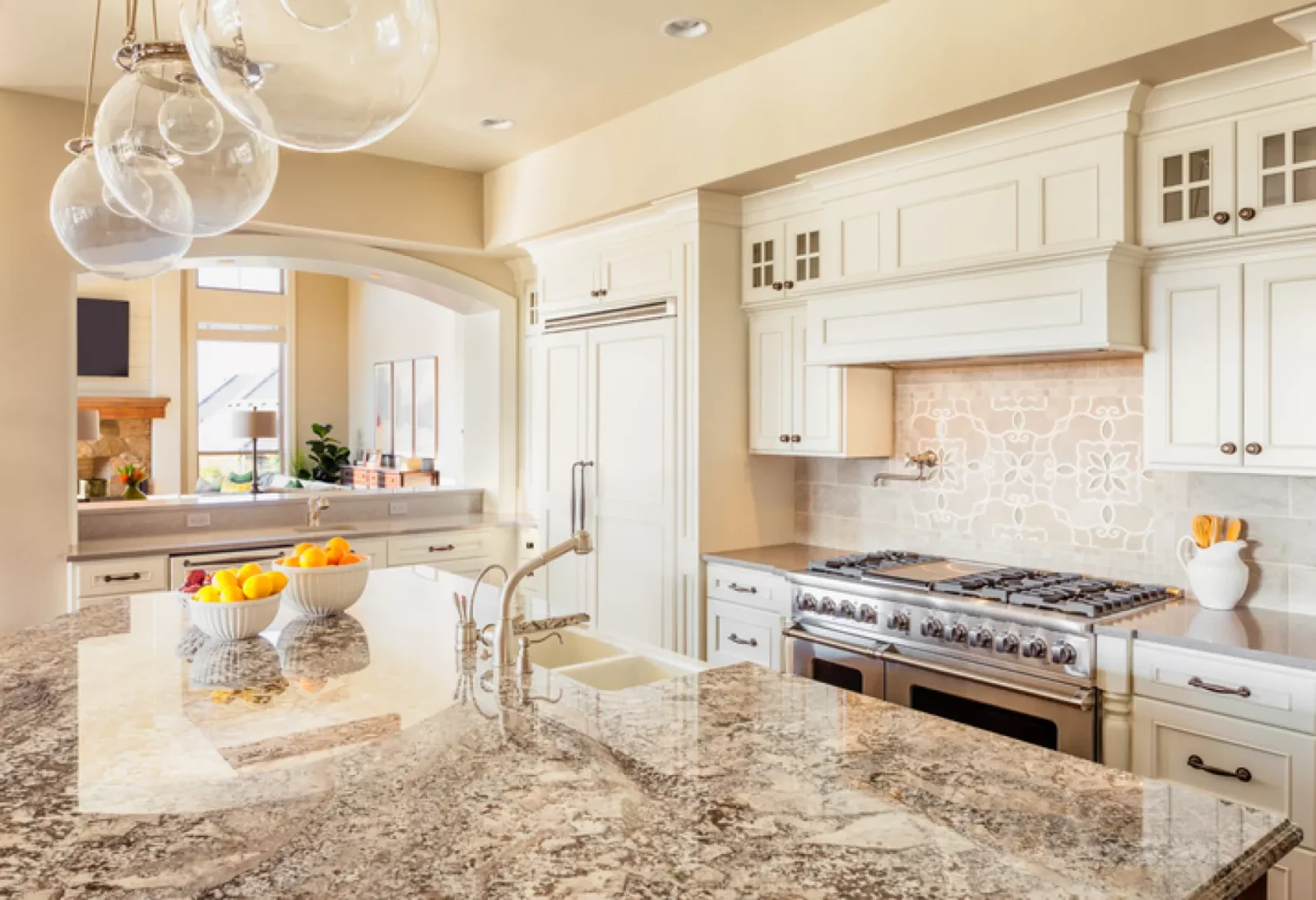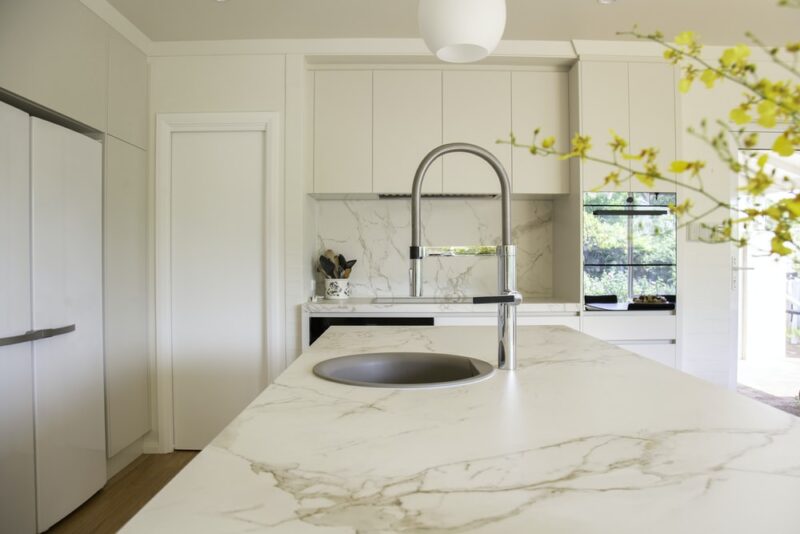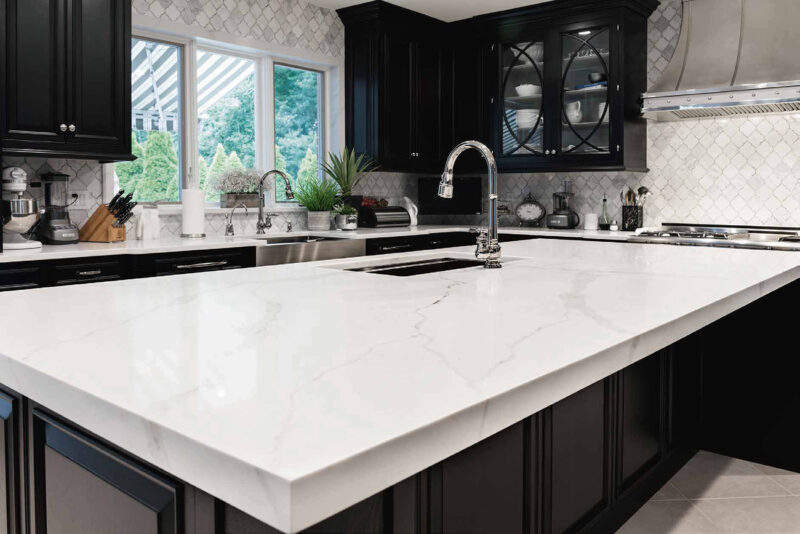As the room where food preparation occurs, kitchens unsurprisingly harbor more germs and bacteria than other household spaces. Research shows that kitchen sinks, countertops, tabletops, and appliances show higher levels of bacterial contamination compared to other areas. Food bits, water and humidity provide ideal conditions for microbes to thrive.
With greater awareness of public health and disease prevention nowadays, there is increased interest in antibacterial finishes and materials. Particularly around kitchen surfaces subject to handling and exposure of raw meats, fruits, and vegetables. Keeping countertops hygienic not only minimizes spread of illness but also food-borne pathogens behind food poisoning.
Innovations in Antibacterial Countertop Materials

In response to consumer demand, as well as building standards emphasizing healthy spaces, manufacturers offer more antibacterial countertop options. Homeowners renovating kitchens or designers equipping commercial kitchens have an array of choices. Countertop materials ranging from solid surface acrylics to engineered quartz to metal composites now provide antibacterial properties. Here are some of the latest advancements:
Solid Surface Acrylics
Long popular as an affordable, low-maintenance alternative to natural stone, solid surface acrylics like Corian or Avonite have expanded offerings. Leading brands have introduced improved antibacterial formulas that prevent up to 99.9 percent bacteria growth. Using silver ion technology, the countertops continuously fight microbes and infection-causing pathogens.
Beyond the antibacterial aspect, some other benefits of solid acrylic surfaces appeal to homeowners. Consistent coloring throughout means scratches, staining or burns only impact layers versus entire thickness. This allows sanding or refinishing to easily repair or restore countertops discolored through daily wear-and-tear. Waterproof composition also withstands liquid spills and damp environments common around sinks. Affordable pricing suits moderate kitchen remodel budgets.
Engineered Quartz

The people at Bedrock Quartz say that as quartz countertops keep gaining market share for durability and appearance resembling natural stone, brands highlight hygienic attributes. Made of ground quartz crystals combined with resins, quartz counters are non-porous, preventing bacteria penetration. Seamless installation without grout lines limits areas where grime or germs accumulate. Quartz makers have optimized low-VOC resins ensuring carbon emissions stay well under thresholds. Surfaces maintain indoor air quality with minimal off-gassing.
While more costly than laminates or acrylic solid surfaces, pricing of quartz counters continues dropping to capture demand in eco-conscious consumer segments. Minimal maintenance without the need to seal or polish saves long-term hassles. With UV-stable non-fading colors, quartz counters retain handsome visuals year after year.
Metal Composites

A newer player amongst antibacterial countertops, copper-infused metal composites blend aesthetics, performance, and hygienic properties. Combining recycled copper with engineered quartz or solid surface acrylics allows extensive design flexibility. From the metallic shimmering look of hammered copper to earthy patinas in bronze, rusts and verdigris, choices meet modern, vintage, or old-world styling.
Unlike standard metal counters prone to heat and corrosion damage, resilient metal composites withstand scratches, temperature extremes and typical kitchen conditions. Non-porous materials repel microbes, liquids, and grime, which allow for easy, low-maintenance upkeep. Where design sensibility desires natural metal finishes but practicality necessitates durable surfaces, copper-quartz or copper-acrylic composites deliver best both worlds.
Conclusion
With so much time spent in kitchens preparing meals, sanitary conditions are no longer an afterthought. Home chefs demand countertop surfaces facilitating cooking tasks that also inhibit risky germs. Kids, elderly family members, and those with compromised immunity especially benefit from antibacterial advances minimizing infection transmission.
Fortunately, with expanding choices in hygienic-minded countertop materials, aesthetic appeal does not need to be sacrificed. Manufacturing innovations allow antibacterial properties to be incorporated into material integrity rather than short-lived surface applications. This delivers enduring antimicrobial benefits lasting the full lifecycle of high-quality countertops. For healthy homes and healthier living, antibacterial counter materials check all the boxes.


